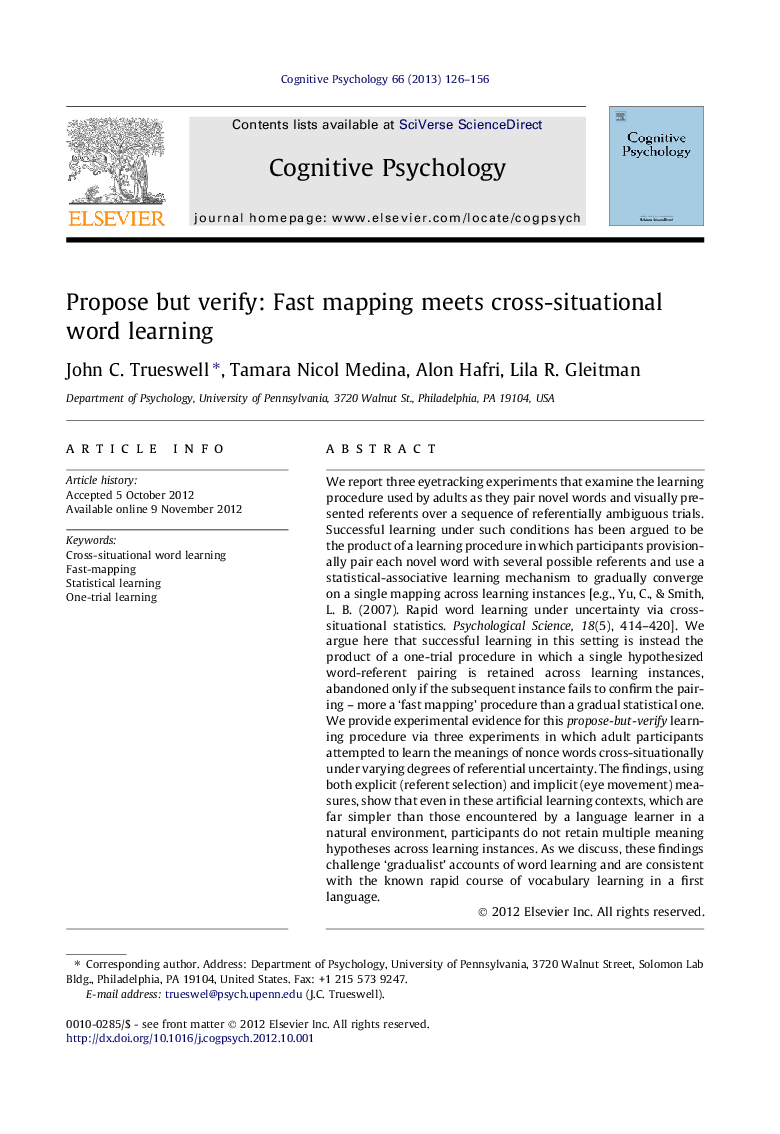| کد مقاله | کد نشریه | سال انتشار | مقاله انگلیسی | نسخه تمام متن |
|---|---|---|---|---|
| 916906 | 919000 | 2013 | 31 صفحه PDF | دانلود رایگان |

We report three eyetracking experiments that examine the learning procedure used by adults as they pair novel words and visually presented referents over a sequence of referentially ambiguous trials. Successful learning under such conditions has been argued to be the product of a learning procedure in which participants provisionally pair each novel word with several possible referents and use a statistical-associative learning mechanism to gradually converge on a single mapping across learning instances [e.g., Yu, C., & Smith, L. B. (2007). Rapid word learning under uncertainty via cross-situational statistics. Psychological Science, 18(5), 414–420]. We argue here that successful learning in this setting is instead the product of a one-trial procedure in which a single hypothesized word-referent pairing is retained across learning instances, abandoned only if the subsequent instance fails to confirm the pairing – more a ‘fast mapping’ procedure than a gradual statistical one. We provide experimental evidence for this propose-but-verify learning procedure via three experiments in which adult participants attempted to learn the meanings of nonce words cross-situationally under varying degrees of referential uncertainty. The findings, using both explicit (referent selection) and implicit (eye movement) measures, show that even in these artificial learning contexts, which are far simpler than those encountered by a language learner in a natural environment, participants do not retain multiple meaning hypotheses across learning instances. As we discuss, these findings challenge ‘gradualist’ accounts of word learning and are consistent with the known rapid course of vocabulary learning in a first language.
► We experimentally investigated the cognitive processes underlying word learning.
► Adults learned word meanings across multiple referentially ambiguous instances.
► It was found that participants tend to track and test a single meaning per word.
► This is inconsistent with associative models that track multiple meaning hypotheses.
► Word learning is more a ‘fast mapping’ procedure than a statistical one.
Journal: Cognitive Psychology - Volume 66, Issue 1, February 2013, Pages 126–156